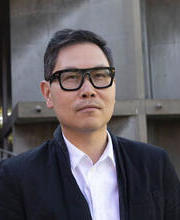Nariman Skakov

I am a specialist in the 20-century Russian/Soviet culture. I have completed three books:
1. The Cinema of Tarkovsky: Labyrinths of Space and Time (IB Tauris / Macmillan, 2012).
The book explores a clash of subordination between concepts of space and time in Tarkovsky’s seven feature films. Uninterrupted “long take,” the director’s most celebrated stylistic device, remains open and refuses to be closed (edited), striving towards continuous presence. However, the presented temporal topology generates “unreal reality,” which is imbued with lapses and digressions that manifest themselves through spatial abnormalities.
2. Reorientalism: From Avant-Garde to National Form (Modernist Latitudes Series, Columbia University Press, 2024).
This study challenges traditional historiographies of the Soviet avant-garde, and of late modernism more generally, by providing a socio-political analysis of aesthetic form and by engaging with the eastward reorientation of the main representatives of the early Soviet experimental tradition, including Viktor Shklovsky, Aleksandr Rodchenko, Varvara Stepanova, Dziga Vertov, and Sergei Eisenstein, during the 1920s-1940s. Drawing upon extensive archival sources, the book offers a profoundly revisionist understanding of the fate of Soviet modernism, arguing that the 1930s can be regarded as a period of that movement’s expansion and both formal and political evolution as it came into contact with the regions of Central Asia recently incorporated into the project of Soviet socialism.
3. Vanguard Belatedness: Andrei Platonov between Modernism and Realism (under review with Northwestern University Press, 2025).
The book historicizes Platonov’s 1930s texts through the modernism–realism debate, which defined aesthetic contours in the USSR and in the West. The establishment of the socialist realist framework and the anti-formalist campaign of the 1930s were accompanied by theoretically rigorous debates to which were led by Platonov and György Lukács in The Literary Critic. Thus, Platonov extensive and still understudied 1930s corpus contributes to one of the central aesthetic debates of the early twentieth century – the one held between proponents of the experimental aesthetics of modernism and advocates of the reinvented realist tradition, which went beyond socialist realism.
Currently my research project revolves around one question: how Russia’s war in Ukraine became a historical possibility.
Education